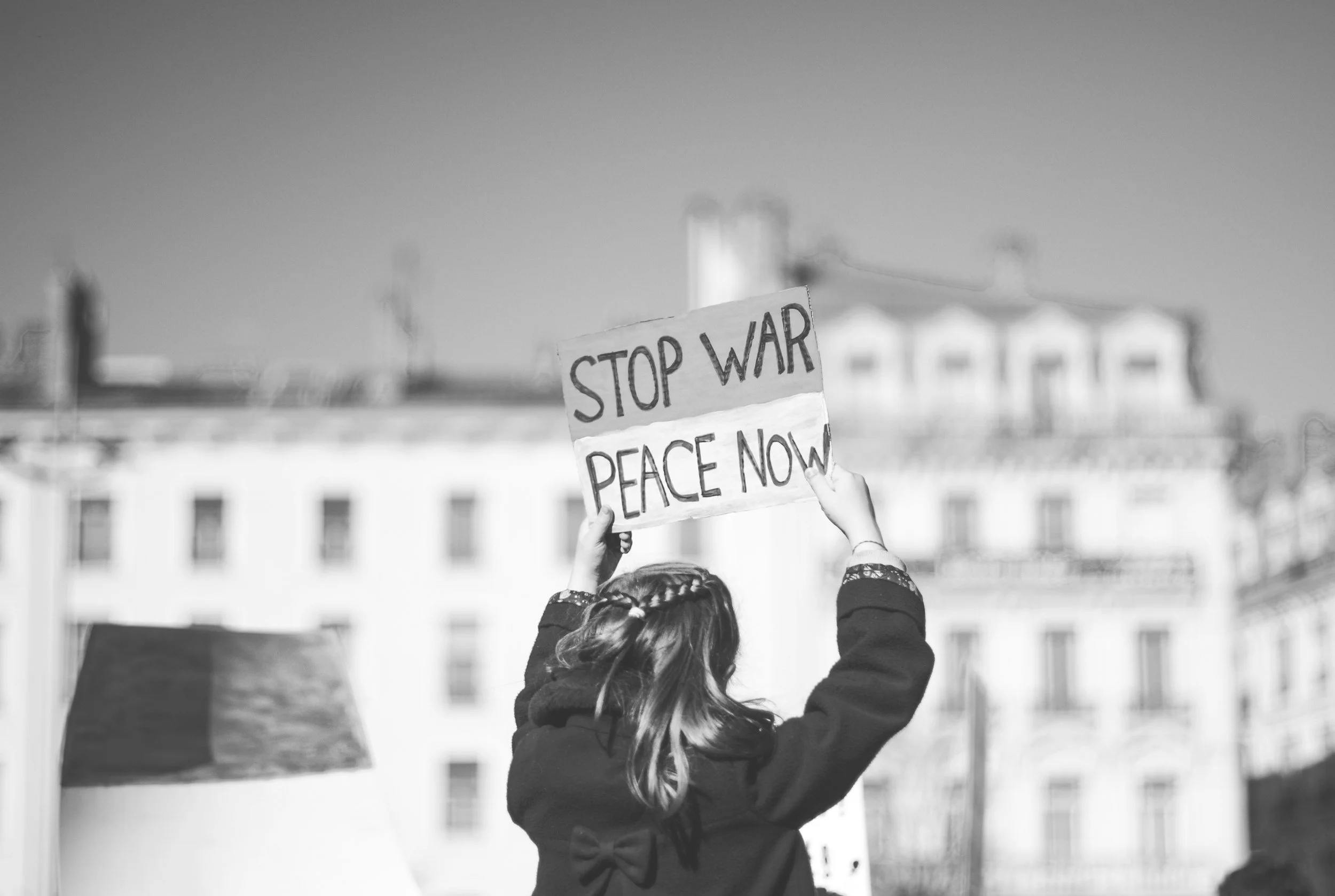You've Been Lied To: Why Your Neighbor Isn't the Enemy
a female protestor holds a sign that reads, “stop war, peace now”
Are you tired of constantly feeling division, rage, and arguments everywhere, especially online? We can all fall victim to echo chambers and wind up isolated, angry, and often misinformed. It's easy to get caught in an us vs. them mentality when we're bombarded with negativity. But the truth is, we've been lied to. Your neighbor, colleague, or the stranger with different opinions isn't the real enemy.
The Real Culprit Behind the Division
For years, we've been fed a narrative that people who think differently are threats. Social media algorithms thrive on outrage and controversy, showing us extreme content that confirms our beliefs while painting anyone who disagrees as a villain. News headlines and online debates often make it seem like we're hopelessly divided into opposing camps. This constant stream of “opposing thoughts are bad” messaging is no accident. It keeps us engaged. Unfortunately, it also keeps us suspicious, divided, and focused on a lot of the wrong stories.
The result? We end up dehumanizing folks who don’t share our views. We forget that behind that opposing opinion is a person with hopes, fears, and experiences, not a caricature of evil. The more we silo ourselves with like-minded voices, the harder it becomes to see our supposed “enemies” as human beings just like us. However, when you step outside that bubble and actually talk to people, you often find common ground and empathy waiting on the other side.
Bridging the Divide with Conversation
Some of the most inspiring examples of shattering this false divide come from unlikely friendships. Take Daryl Davis for example. He's an African-American musician who did something incredible: he sat down with members of the Ku Klux Klan and simply listened and talked. Over time, through genuine conversation, he helped convince more than 200 KKK members to walk away from hate. Many even handed him their robes as a sign of their transformation. (You can hear Daryl’s astonishing story in his interview on the Joe Rogan Experience #1419.) If anyone had reason to write off the “other side,” it was Daryl, yet he chose understanding and made a monumental difference.
Another powerful story is that of Megan Phelps-Roper. She was born into the infamous Westboro Baptist Church, a group known for extreme hate-filled protests. Megan was taught to view the world as “us vs. them,” but her perspective changed when strangers on Twitter approached her with curiosity and respect instead of attacks. Through patient conversations (and a lot of listening on both sides), she began to question her beliefs. Eventually, Megan left the extremist group she once called family. Now she advocates empathy and open dialogue to overcome hate. She discussed this transformation in depth on Joe Rogan’s podcast (episode #974). Her story proves that even someone deeply ingrained in a mindset of hate can open their mind when met with compassion.
If these extreme cases can find common ground, imagine what we can do in our everyday lives. Most of us will never be in Daryl’s or Megan’s shoes, but we all encounter disagreements, whether it's political differences with a coworker, a clash of values with a family member, or debates with friends on social issues. We have a choice: we can see the person who disagrees as an enemy, or we can choose to approach them with understanding.
Choosing Understanding in Your Own Life
So, how can you start breaking out of the anger cycle and seeing others in a new light? Here are a few approaches to get you started:
Listen to understand, not to win: In a heated discussion, try genuinely listening to the other person’s points instead of formulating your comeback. When people feel heard, they’re more likely to reciprocate and hear you too.
Find shared humanity: Remember that the person across from you has struggles and dreams, just like you. Focus on any common ground, perhaps you both care about your families, your community, or other big-picture values. Shared connection makes it harder to cast someone as a villain.
Step out of your echo chamber: Make an effort to read or watch a variety of perspectives rather than only those that reinforce what you already think. Better yet, talk to people outside your usual circle. Diversity of thought can be eye-opening, and it doesn’t threaten your own beliefs to understand someone else’s viewpoint.
Take a pause from the outrage: If you find social media is fueling your anger or anxiety, it’s okay to step back. Tweak your social feeds or take a digital detox to clear your head. Constant outrage is exhausting, so reducing that noise helps you approach others more calmly and open-mindedly.
Lead with empathy and respect: You don’t have to agree with someone to treat them with basic kindness. Practice to improve the fine art of questioning without judgment. Phrases like “I’d like to understand where you’re coming from” can defuse defensiveness. Even if you still disagree in the end, you might both walk away with more respect or perspective.
Changing how we view “the other side” isn’t always easy, but it’s absolutely worthwhile. When we resist the narrative of division and choose to engage with openness, amazing things can happen. We might heal a strained relationship, learn something new, or simply find more peace by not holding onto so much anger. At the very least, we become an example to those around us that there is a better way.
So, the next time you catch yourself labeling someone as an enemy just because of a different viewpoint, take a breath. Will you choose curiosity and compassion over conflict? Your answer might just change your life, and maybe even the world around you.


